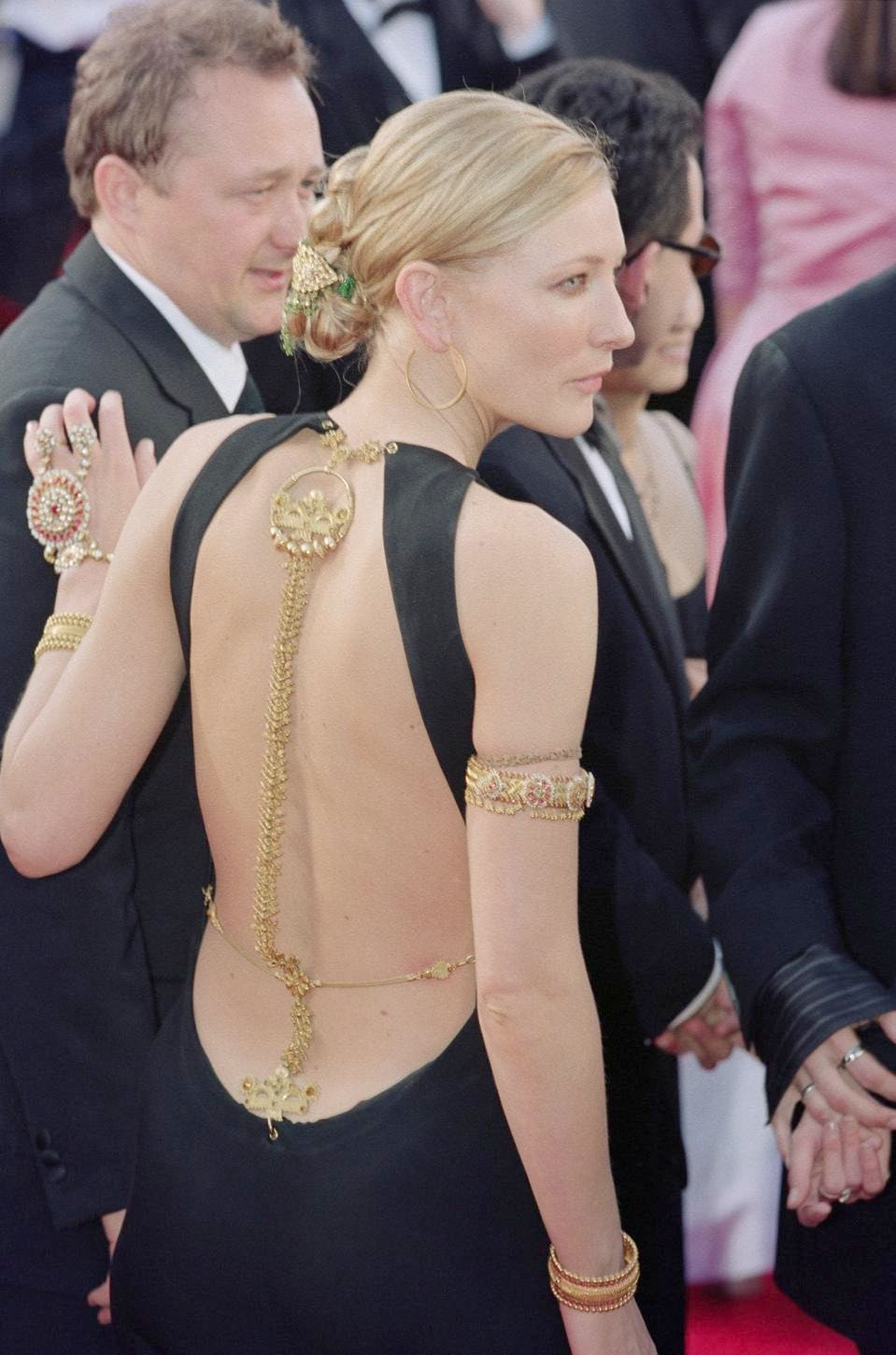During her acceptance speech for the Toronto International Film Festival Share Her Journey Groundbreaker Award, Cate Blanchett called for an increased focus on sustainability and green practices in the film industry, as well as a continued commitment to varied storytelling that uplifts women.
“In an industry that naturally recycles and reexamines ideas, I think there’s an inherent creative circularity to the way we make work,” she said. “And as we all know, gloat and excess are the enemy of creativity. I think the piece of change we’re missing is to make work as an industry more sustainable, more circular.”
With her words at the TIFF Tribute Awards at the Royal York, presented by Joanna Griffiths and the women of Knix, she praised the entertainment world for being at the “forefront” of finding ways to continue operations amid the pandemic. While there were COVID officers appointed to productions, she asked, “Where are the green officers?”
At this time, her speech was briefly interrupted by the stage music that began playing to cut off long acceptances at ceremonies. “Oh is that music?” she said, looking around and briefly confused as the audience chuckled.
“You mention climate change, and that’s what you get,” she said, throwing her hand up.
“It’s the end of a long evening folks, but — you know — it could be the end of us all,” she said, prompting cheers from attendees and shouts of someone heard chanting, “More, more, more!”
“I think there is a moral imperative to make this switch … we are a hugely influential industry and there’s a huge financial and creative opportunity in making work more sustainably,” she concluded. “So I would suggest that we seize this opportunity. I’m off my soap box now and off to the bar.”
Blanchett's Call to Action
Blanchett’s speech highlighted the need for a shift in the film industry’s approach to sustainability. She advocated for a more circular approach to filmmaking, emphasizing that the industry’s influence can be harnessed to drive positive change. Her call to action resonated with the audience and sparked conversations about the environmental impact of filmmaking.
Sustainability in the Film Industry: A Growing Concern
The film industry’s environmental impact has been a growing concern in recent years, with several initiatives focused on reducing its carbon footprint. The shift towards more sustainable practices is being driven by a combination of factors, including environmental awareness among filmmakers, industry regulations, and the increasing demand for environmentally conscious products and services.
Examples of Sustainable Practices in Filmmaking
- Carbon Offsetting: Many production companies are now offsetting the carbon emissions associated with their productions by investing in renewable energy projects or supporting carbon capture initiatives.
- Recycled Materials: Studios are using more recycled materials, such as recycled paper and plastic, for sets, props, and costumes.
- Energy Efficient Lighting: The adoption of LED lighting on sets, which consumes less energy than traditional lighting, is becoming increasingly common.
- Sustainable Transportation: Productions are using electric vehicles and public transportation where possible, reducing their reliance on gasoline-powered vehicles.
The Future of Sustainable Filmmaking
Blanchett’s call to action reflects the growing recognition of the film industry’s responsibility to be more sustainable. As environmental concerns become more pressing, it’s likely that the industry will continue to adopt sustainable practices, making a positive impact on the planet. The future of filmmaking will be defined by innovation, creativity, and a commitment to environmental responsibility. In the years to come, we can expect to see more films that incorporate sustainable practices and promote environmental awareness, driving progress towards a greener and more sustainable future for the film industry.

















